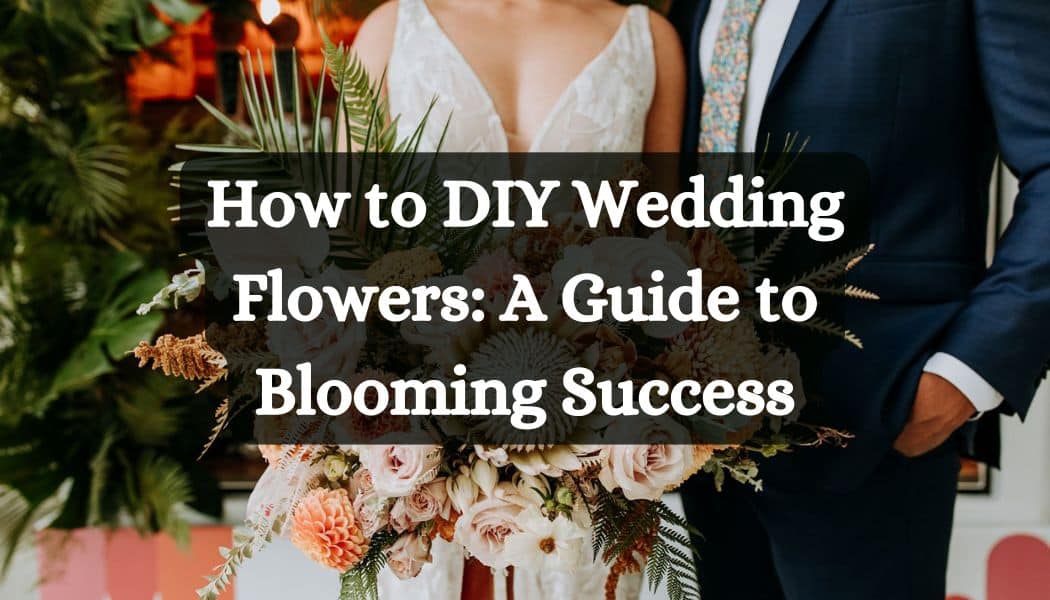
Wedding planning is like trying to balance champagne dreams on a beer budget. But here’s the good news: your wedding flowers don’t have to cost a fortune. Get your hands dirty and dive into the world of DIY wedding flowers, and not only will you save money, but you’ll also get a personal touch that no florist or wedding stylist can give you. So if you’re wondering how to DIY wedding flowers, let’s get into it.
Table of Contents
Why DIY Wedding Flowers Are Worth It
Wedding florals can gobble up a big chunk of your budget. Doing your own wedding flowers isn’t just about saving money; it’s also about adding a personal touch to your big day. Every bloom you arrange tells a story, and there’s something so special about walking down the aisle with a bouquet you’ve made yourself.
But let’s not sugarcoat it—DIY wedding flower arrangements take work. This guide will show you how to do your own flowers for your wedding, with practical tips, budget-friendly hacks, and inspiration to create beautiful arrangements you’ll love.
Step 1: Planning Your DIY Wedding Flowers
Before you get into the blooms, take some time to plan. Good planning is the foundation of any successful DIY wedding flower project.
Theme and Style
Do you want rustic, whimsical arrangements with lots of greenery? Or classic, elegant wedding florals with roses and peonies? Your theme will dictate your decisions when it comes to colours, flowers, and overall design.
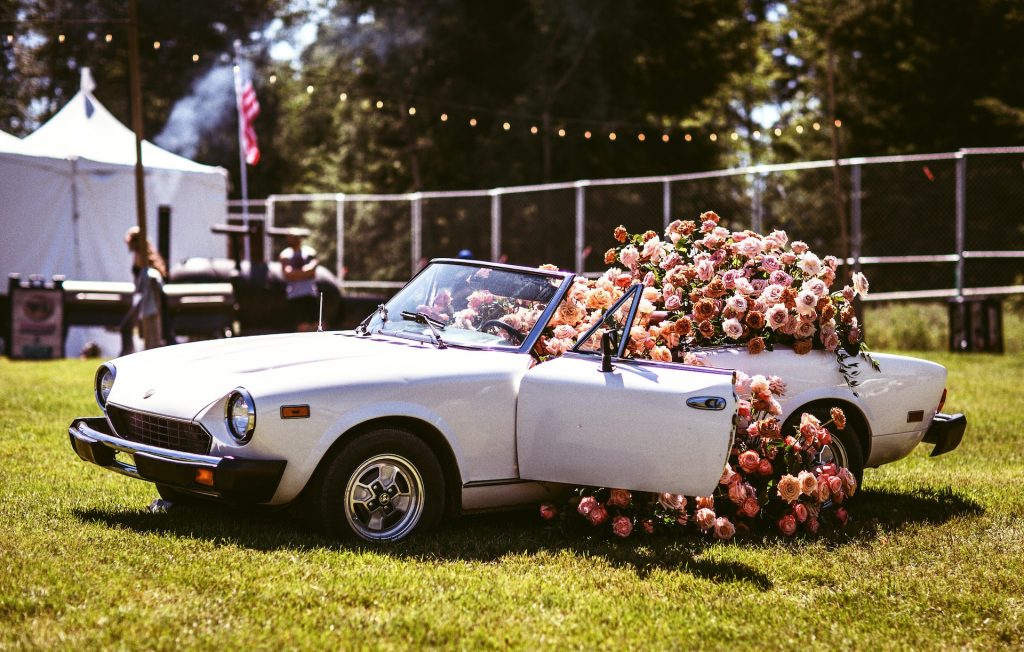
Make a List of Arrangements
Start by asking, “What wedding flowers do I need?” Common arrangements include bridal bouquets, boutonnieres, corsages, table centrepieces, and ceremony decorations. Write down everything so you can calculate quantities and costs accurately.
Set a Real Budget
Wedding flowers on a budget are possible if you prioritise. Allocate your budget wisely and focus on the important arrangements like the bridal bouquet and centrepieces. Fillers like greenery or baby’s breath will stretch your budget and add texture and dimension.
Consider Your Venue’s Style
Take note of your venue. An outdoor garden wedding will look lovely with wildflowers, while a formal ballroom will require structured arrangements with roses or orchids. Match your DIY florals to your venue and it will look even better.
Buy Extra Blooms
Always buy a few extra stems. Flowers are delicate, and having spares will mean you can replace any that get bruised or wilted during handling.
Step 2: Choosing and Sourcing Your Flowers
Knowing where to get your flowers and how to choose blooms that fit your vision is key.
Where to Buy Flowers
- Local Markets: Farmers’ markets are a great source of fresh, seasonal flowers at budget prices.
- Wholesale Florists: These suppliers sell flowers in bulk, perfect for DIY wedding flower arrangements.
- Online Retailers: Websites that deliver bulk flowers can make sourcing easier. Just make sure you’re buying from a reputable supplier.
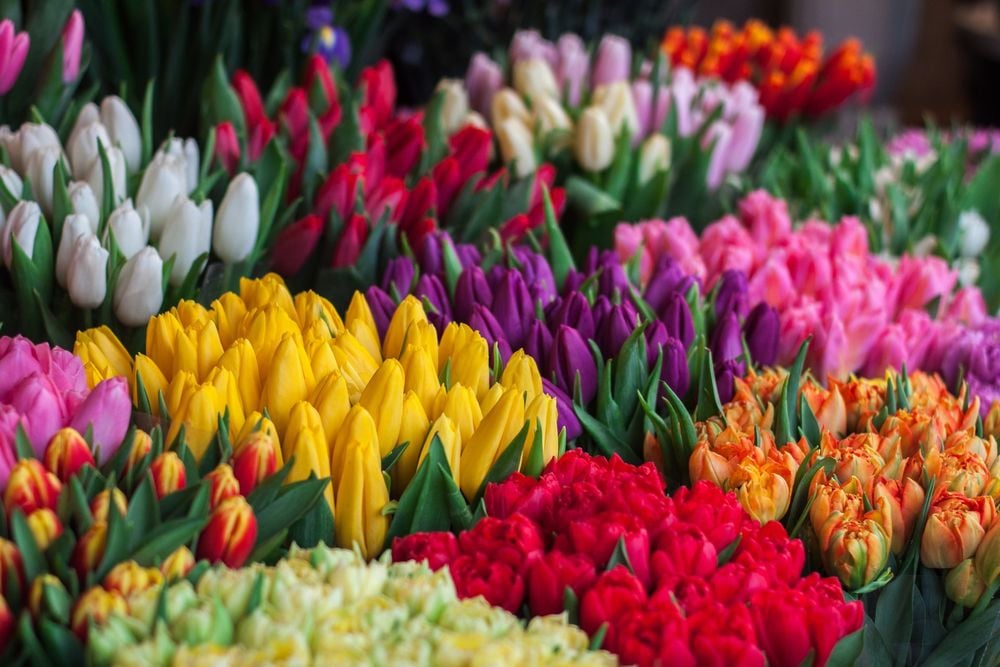
Go Seasonal
Choosing seasonal flowers isn’t just budget-friendly; it also guarantees freshness. For a summer wedding, think hydrangeas, daisies, and sunflowers. Autumn couples might opt for chrysanthemums and dahlias.
Be Flexible
If your chosen flowers aren’t available, don’t stress. Talk to your supplier—many flowers have lookalike options that work just as well in wedding flower designs.
Sustainable Options
For eco-friendly couples, consider sourcing from local growers who practice sustainable farming. This not only supports small businesses but also reduces the environmental impact of your wedding.
Ordering Tips
Order your flowers to arrive 2–3 days before the wedding. This will give you time to condition them properly and create your arrangements while ensuring they stay fresh.
Step 3: Tools and Supplies You’ll Need
Before you start arranging, get your tools. Having everything ready will make your DIY flower wedding much easier.
Basic Tools
- Floral tape and wire
- Sharp scissors or pruning shears
- Floral foam for centrepieces
- Vases, jars, or floral containers
- Ribbon or twine for bouquets
Handy Checklist
Download our free checklist to keep track of your tools and supplies. Preparation is key to DIY wedding flowers.
Extras That Help
Buy tools like a floral knife or stem stripper to speed up the process. These little extras can save time and make handling flowers easier.
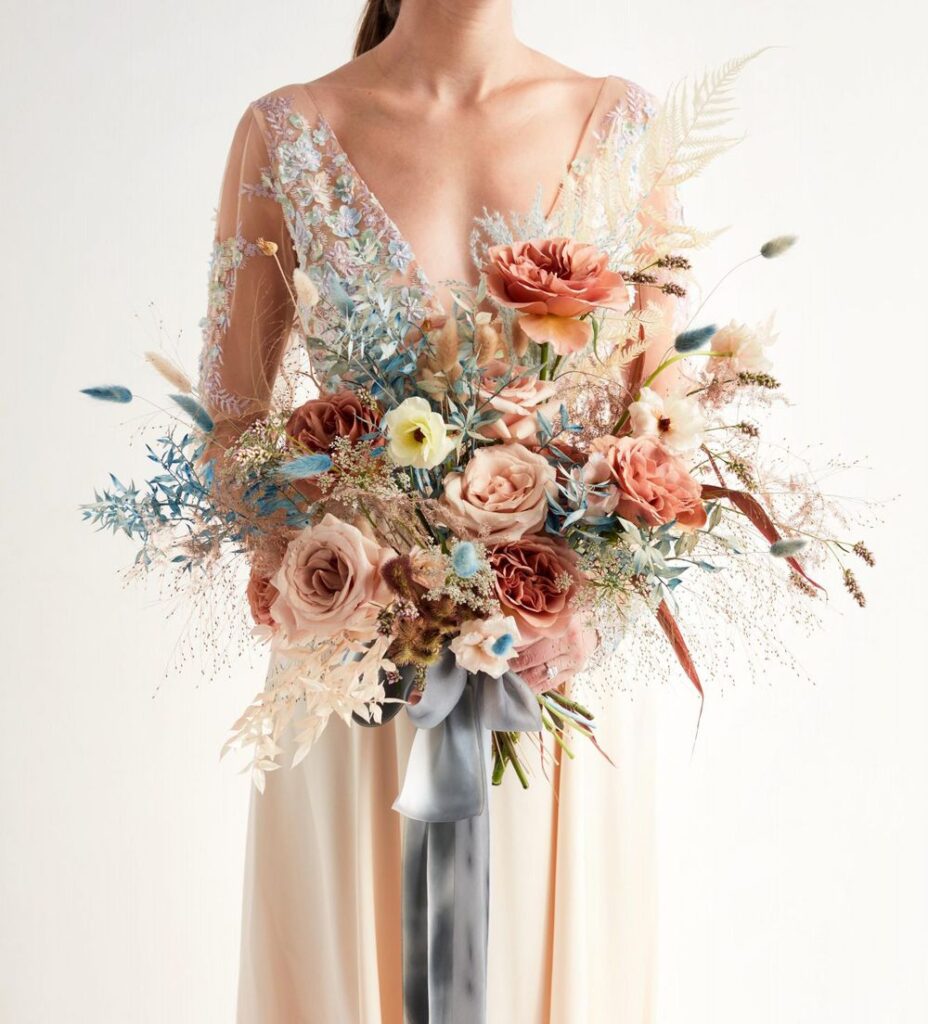
Storage Tips
Store tools like floral foam and tape in a dry, cool place so they don’t deteriorate before the big day.
Step 4: Assembling Your Floral Arrangements
Here’s where the magic happens! Follow these step-by-step tips to create your DIY bridal flowers, centrepieces, and more.
How to Make Your Own Wedding Flowers
- Start with a Base: Use greenery as a base to add shape to your arrangements.
- Add Focal Blooms: These are your larger, feature flowers, like roses or lilies.
- Fill in the Gaps: Use filler flowers like baby’s breath or small daisies to fill.
- Tie It All In: Wrap the stems with floral tape, then cover with ribbon or twine.
DIY Wedding Bouquet Ideas
For a boho look, mix wildflowers with eucalyptus. For elegance, combine white roses, peonies, and a bit of greenery. Tailor each bouquet to your wedding style.
Centrepieces Made Easy
DIY wedding flowers don’t have to be hard. Mason jars, floating candles, and a few stems of your favourite flowers can create beautiful table decor without the cost.
Flower Installations
Consider flower arches or hanging installations for a wow factor. These take more effort but can be a showstopper for your ceremony or reception.
Practice First
Try out your arrangements a few weeks before the wedding. Practising will reveal any issues and boost your confidence for the final assembly.
Step 5: Caring for Your Flowers
Keep your wedding flowers fresh and looking their best. Here’s how:
- Store Properly: Keep flowers in a cool, dark place with water until it’s time to arrange them.
- Water is Key: Top up water frequently and add flower food if you have it.
- Revive Wilting Blooms: Trim the stems and put flowers in warm water to perk them up.
Transporting Your Flowers
Use sturdy boxes or containers to transport your arrangements to the venue. Add damp paper towels to the stems to keep them hydrated during transport.
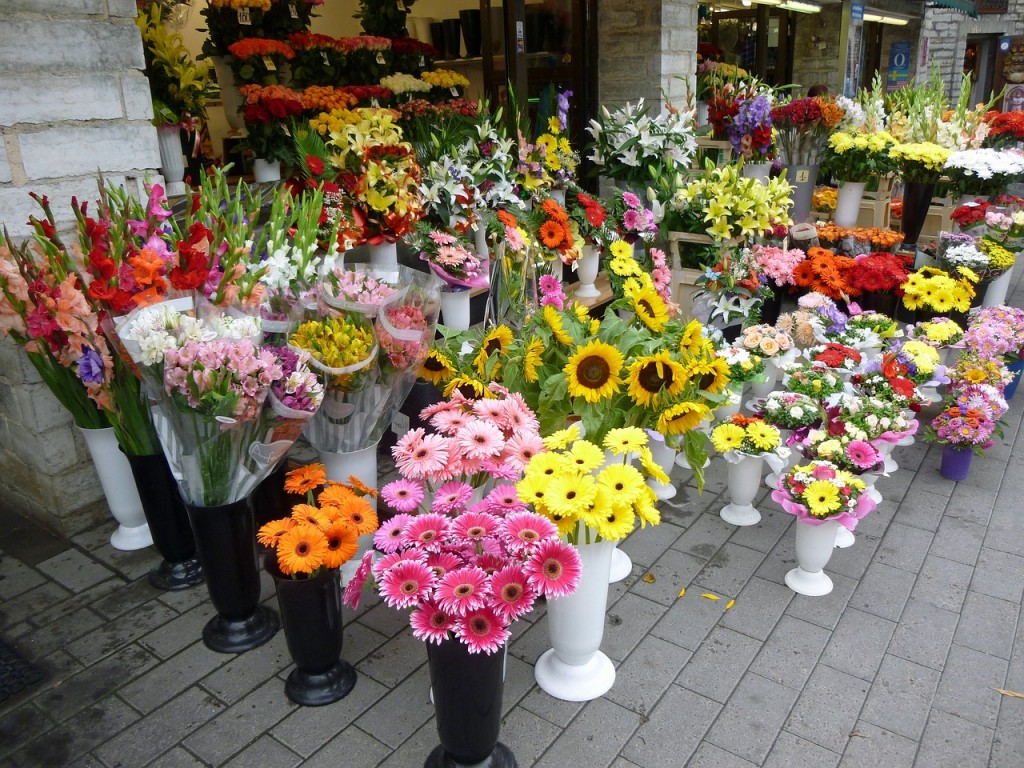
Day-of Essentials
Bring a small kit with extra ribbon, floral tape, and scissors for quick fixes.
Step 6: Timing and Logistics
DIY wedding flowers need to be well-timed.
Create a Schedule
- 3 Weeks Before: Order your flowers.
- 2 Days Before: Receive your flowers and prep them.
- 1 Day Before: Arrange all bouquets and centrepieces.
- Wedding Day: Make minor adjustments and transport flowers to the venue.
Get Helpers
Organise a flower arranging party with your bridal party or family. It’s a great way to bond and share the load.
Venue Setup Tips
Talk to your venue to find out when you can set up your floral arrangements. Arrive early to give yourself time to make adjustments and final touches.
Time Management
Allow 2–3 hours to create bouquets and centrepieces. Rushing can lead to mistakes, so plan ahead.
Common Mistakes to Avoid
Even the best DIY florists can go wrong. Watch out for:
- Overordering flowers and blowing your budget.
- Not practising bouquet assembly.
- Not planning how flowers will get to the venue.
- Underestimating the time to arrange and set up.
Practice Makes Perfect
Try out a few arrangements a few weeks before the wedding. This will give you confidence and allow you to hone your skills.
Budget-Friendly DIY Wedding Flowers
- Reuse Arrangements: Ceremony flowers can be used as reception decor.
- Use Fillers: Greenery and baby’s breath are cheap and beautiful.
- Mix DIY and Professional: Hire a florist for the hard bits like an arch and do the simpler arrangements yourself.
Alternative Decor
Consider using potted plants or dried flowers as part of your decor. These can be reused or given as favours—it’s a win-win.
Bulk Buying
Buying in bulk can save you a lot of money. Split an order with another couple or friend to get the best deal.
Bonus: DIY Wedding Flowers FAQs
How Much Can I Save by Doing My Own Wedding Flowers?
DIY wedding flowers can save you 40–60% of what a professional florist would charge. But your actual savings will depend on the flowers you choose and the size of your arrangements.
What Are the Best Flowers for Beginners?
Roses, carnations, and daisies are great for beginners. They are tough, versatile, and forgiving, so perfect for DIY wedding flower arrangements.
How Can I Make My DIY Flowers Stand Out?
Add personal touches like heirloom brooches, colourful ribbons, or even handwritten tags to your arrangements. These little details will make your flowers one of a kind.
You Can Do This!
DIY wedding flowers seem scary, but with a little planning and a bit of flair, you can do it. Remember, the beauty of DIY isn’t just in the savings; it’s in the making of something special for your special day. So get your scissors, gather your tribe, and let it grow.












